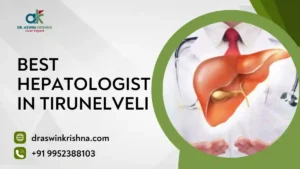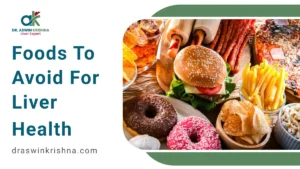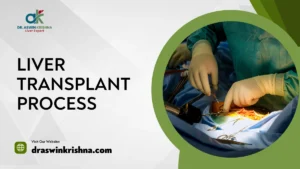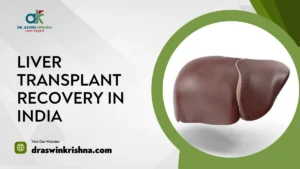Understanding how to prevent liver cirrhosis is crucial for maintaining long-term health and well-being. This condition, marked by irreversible liver damage, can lead to serious health complications if not addressed properly. Through proactive measures and lifestyle adjustments, the risk of developing cirrhosis can be significantly reduced.
What is Liver Cirrhosis?
Liver cirrhosis is a severe condition where normal liver tissue is progressively replaced by scar tissue, impeding liver function. This scarring process, often due to chronic liver damage from factors like alcohol abuse or hepatitis, obstructs the liver’s ability to process nutrients, hormones, and drugs, and can hinder toxin removal. Understanding how to prevent liver cirrhosis is vital to safeguard liver health.
Causes of Liver Cirrhosis
To understand how to prevent liver cirrhosis, it’s crucial to recognize its causes. Liver cirrhosis develops due to various factors, often related to lifestyle choices and medical conditions:
- Chronic Alcohol Abuse: Excessive drinking over time leads to liver damage and cirrhosis.
- Hepatitis B and C: Chronic infections with these viruses can cause liver inflammation and scarring.
- Non-Alcoholic Fatty Liver Disease (NAFLD): Accumulation of fat in the liver, often associated with obesity and diabetes.
- Autoimmune Hepatitis: The body’s immune system attacking liver cells can lead to cirrhosis.
By addressing these causes, strategies on how to prevent liver cirrhosis can be more effectively implemented, emphasizing the importance of lifestyle modifications, regular health screenings, and management of underlying health conditions.
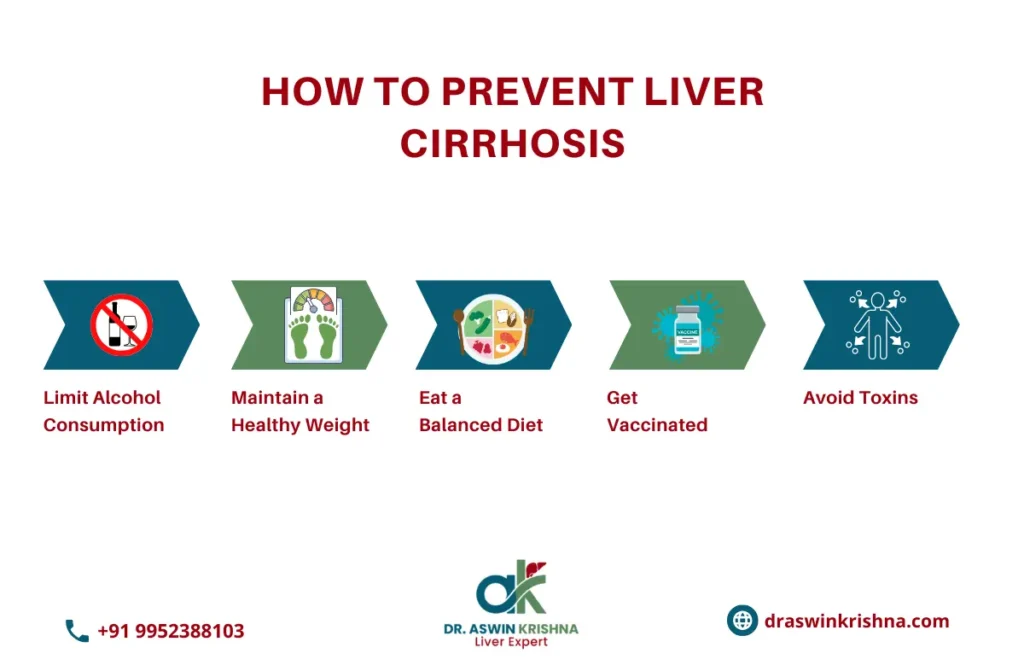
Risk Factors for Liver Cirrhosis
To effectively learn how to prevent liver cirrhosis, understanding the risk factors is essential. Common risk factors include:
- Chronic alcohol consumption: Excessive drinking over time can severely damage the liver, leading to cirrhosis.
- Hepatitis B and C infections: Chronic viral infections are significant contributors to liver damage.
- Non-alcoholic fatty liver disease (NAFLD): A condition common in obese and diabetic individuals that can lead to cirrhosis.
- Genetic disorders: Conditions like Wilson’s disease and hemochromatosis can lead to liver dysfunction and scarring.
- Toxic medications: Certain drugs, when used long-term, can harm the liver.
By addressing these risk factors, you can learn how to avoid cirrhosis and maintain optimal liver health.
Complications of Liver Cirrhosis
Untreated cirrhosis can result in several life-threatening complications. Key complications include:
- Liver cancer: Individuals with cirrhosis are at higher risk of developing hepatocellular carcinoma.
- Liver failure: Over time, the liver loses its ability to function, leading to life-threatening conditions.
- Portal hypertension: Increased pressure in the liver’s blood vessels can cause internal bleeding and swelling.
- Variceal bleeding: Weak veins in the stomach and esophagus may rupture, causing severe bleeding.
- Kidney failure: In advanced cirrhosis, the liver’s inability to filter toxins can affect the kidneys.
Strategies for How to Prevent Liver Cirrhosis
Strategies for preventing liver cirrhosis involve a multi-faceted approach focusing on lifestyle and healthcare practices. Here’s how to prevent liver cirrhosis:
- Healthy Diet:
- Consume a nutritious diet filled with fruits, vegetables, and whole grains.
- Avoid high-fat, sugary, and processed foods to reduce liver fat accumulation.
- Moderate Alcohol Consumption:
- Limit or avoid alcohol to prevent liver damage.
- Regular Exercise:
- Engage in regular physical activity to maintain a healthy weight and reduce liver fat.
- Avoid Toxins:
- Minimize exposure to harmful chemicals and drugs that can damage liver cells.
- Regular Health Check-ups:
- Regular monitoring of liver function to catch and manage any liver issues early.
- Vaccinations:
- Get vaccinated against hepatitis B and A to prevent viral liver infections.
By integrating these strategies, the risk of developing liver cirrhosis can be significantly reduced. Education and awareness about how to prevent liver cirrhosis are crucial for individuals at risk or with existing liver health concerns, ensuring they adopt and maintain healthful practices for liver health.
How to Avoid Cirrhosis and Liver Failure
- Control Alcohol Consumption: Minimizing or eliminating alcohol intake to lessen the risk of liver damage, is a crucial step in how to avoid cirrhosis.
- Maintain a Balanced Diet: Prioritize a diet high in fruits, vegetables, lean proteins, and whole grains to prevent fatty liver disease, which is vital in how to avoid liver failure.
- Regular Exercise: Engage in physical activities like walking, cycling, or swimming to maintain a healthy weight and reduce liver fat, helping in how to avoid cirrhosis.
- Monitor Medication Intake: Use prescription and over-the-counter drugs judiciously to prevent liver damage, important for those learning how to avoid liver failure.
- Regular Medical Checkups: Early detection and management of liver conditions can prevent cirrhosis and liver failure, underscoring the importance of routine health screenings in how to avoid cirrhosis.
- Vaccination and Hygiene: Get vaccinated against hepatitis and practice good hygiene to prevent infections that can lead to liver damage, crucial in how to avoid liver failure.
Implementing these measures can significantly contribute to liver health and assist in how to avoid cirrhosis and how to avoid liver failure.
Symptoms of Liver Cirrhosis
Recognizing the symptoms early can help prevent complications and manage the condition better:
- Fatigue and weakness: Persistent tiredness can be an early sign of liver dysfunction.
- Loss of appetite and weight loss: Cirrhosis can affect digestion and metabolism.
- Nausea and vomiting: Frequent stomach discomfort and nausea are common.
- Jaundice (yellowing of skin and eyes): A clear indicator of liver issues.
- Swelling in the legs and abdomen: Fluid retention, known as ascites, is a significant symptom.
- Itchy skin and easy bruising: Reduced liver function affects clotting and skin condition.
By staying aware of these symptoms, you can consult a healthcare provider early to prevent liver cirrhosis from getting worse.
Stages of Liver Cirrhosis
Cirrhosis progresses in four stages, and understanding them helps in timely intervention:
- Stage 1 – Compensated Cirrhosis: The liver is damaged but still functions well. Symptoms are minimal or absent.
- Stage 2 – Early Decompensated Cirrhosis: Portal hypertension (increased blood pressure in the liver) develops, causing minor complications like varices.
- Stage 3 – Severe Decompensated Cirrhosis: More severe symptoms, including jaundice, ascites, and bleeding, become apparent.
- Stage 4 – End-Stage Cirrhosis: Liver failure occurs, and a liver transplant may be necessary.
Understanding the stages of cirrhosis enables individuals to seek medical advice promptly, improving outcomes and preventing the disease from advancing.
How to Prevent Cirrhosis from Getting Worse
Proactive measures and lifestyle changes are essential to prevent liver cirrhosis or slow its progression:
- Limit alcohol consumption: Alcohol is a major cause of liver damage. Reduce or avoid it entirely.
- Maintain a healthy weight: Obesity increases the risk of fatty liver disease, which can lead to cirrhosis.
- Adopt a liver-friendly diet: Consume foods rich in antioxidants, fiber, and healthy fats. Avoid processed foods and sugars.
- Stay hydrated: Drinking enough water helps the liver function properly.
- Exercise regularly: Physical activity supports overall health and reduces liver fat.
- Avoid harmful substances: Limit the use of medications that affect the liver, and avoid illegal drugs.
- Vaccinate: Get vaccinated against hepatitis B and hepatitis A.
- Manage underlying conditions: Control diabetes, high cholesterol, and high blood pressure.
Implementing these strategies can significantly reduce your risk and help prevent liver cirrhosis from getting worse.
How is Cirrhosis of the Liver Diagnosed?
Cirrhosis of the liver is a progressive condition that can lead to severe liver damage if not detected early. Early diagnosis is crucial for effective treatment and learning how to prevent liver cirrhosis. Here are the key methods doctors use to diagnose liver cirrhosis:
- Physical Examination: Doctors check for signs like jaundice, swelling in the abdomen or legs, and visible blood vessels on the skin.
- Blood Tests: Liver function tests help detect elevated liver enzymes, bilirubin levels, and clotting problems, which indicate liver damage.
- Imaging Tests: Ultrasound, CT scans, or MRI scans help visualize liver size, texture, and detect scarring or nodules.
- Liver Biopsy: A small tissue sample is taken from the liver to assess the extent of damage and confirm the diagnosis.
- Elastography: A non-invasive test that measures liver stiffness, helping detect fibrosis or scarring.
Diet and Cirrhosis: Key Factors to Consider
When it comes to how to prevent liver cirrhosis, your diet is one of the most powerful tools you can use. A healthy diet can significantly reduce the risk of liver diseases, including cirrhosis. Here are some essential dietary guidelines:
1. Include More Fruits and Vegetables
Eating a variety of fruits and vegetables can provide your body with the essential vitamins, minerals, and antioxidants that help support liver function. These nutrients aid in detoxifying the liver and promoting cell regeneration, both of which are crucial for liver health. Try to include leafy greens, berries, citrus fruits, and cruciferous vegetables like broccoli and cabbage in your diet.
2. Choose Lean Proteins
Opt for lean protein sources such as fish, chicken, and plant-based proteins (like beans, lentils, and tofu) to support liver regeneration and repair. Protein is essential for healing liver cells and preventing liver damage, which plays a key role in how to prevent liver cirrhosis. Avoid fatty meats, as they can put extra strain on your liver.
3. Limit Saturated Fats and Refined Carbohydrates
Excessive consumption of unhealthy fats and refined carbohydrates, such as those found in fast food, fried foods, and sugary snacks, can lead to fatty liver disease. Fatty liver is a major risk factor for developing cirrhosis. Instead, opt for healthy fats from sources like avocado, olive oil, and nuts, which are easier for the liver to process.
4. Stay Hydrated
Drinking plenty of water is essential for keeping your liver functioning properly. Hydration helps flush out toxins from the body and supports digestion, which reduces the burden on your liver. Aim to drink at least 8 cups of water a day, or more depending on your individual needs and activity levels.
5. Limit Alcohol Consumption
One of the most effective ways to prevent liver cirrhosis is by limiting or avoiding alcohol altogether. Excessive alcohol consumption can lead to alcoholic liver disease, which can progress to cirrhosis. If you do choose to drink, moderation is key, and it’s important to understand how much alcohol your liver can tolerate.
6. Maintain a Healthy Weight
Obesity and being overweight are significant risk factors for developing liver diseases such as fatty liver disease and cirrhosis. A well-balanced diet that helps you maintain a healthy weight is crucial for liver health. Engage in regular physical activity and avoid overeating or consuming unhealthy snacks to keep your liver in top condition.
Conclusion
Understanding how to prevent liver cirrhosis involves adopting a holistic approach to health and lifestyle choices. Key measures include moderating alcohol consumption, following a nutritious diet, engaging in regular physical activity, and undergoing consistent medical check-ups. Additionally, managing underlying health conditions and avoiding liver-toxic substances are essential steps. By taking proactive measures and making informed decisions about one’s health, individuals can significantly reduce their risk of developing liver cirrhosis and maintain optimal liver function.
Read also Facts about Hepatitis C.
